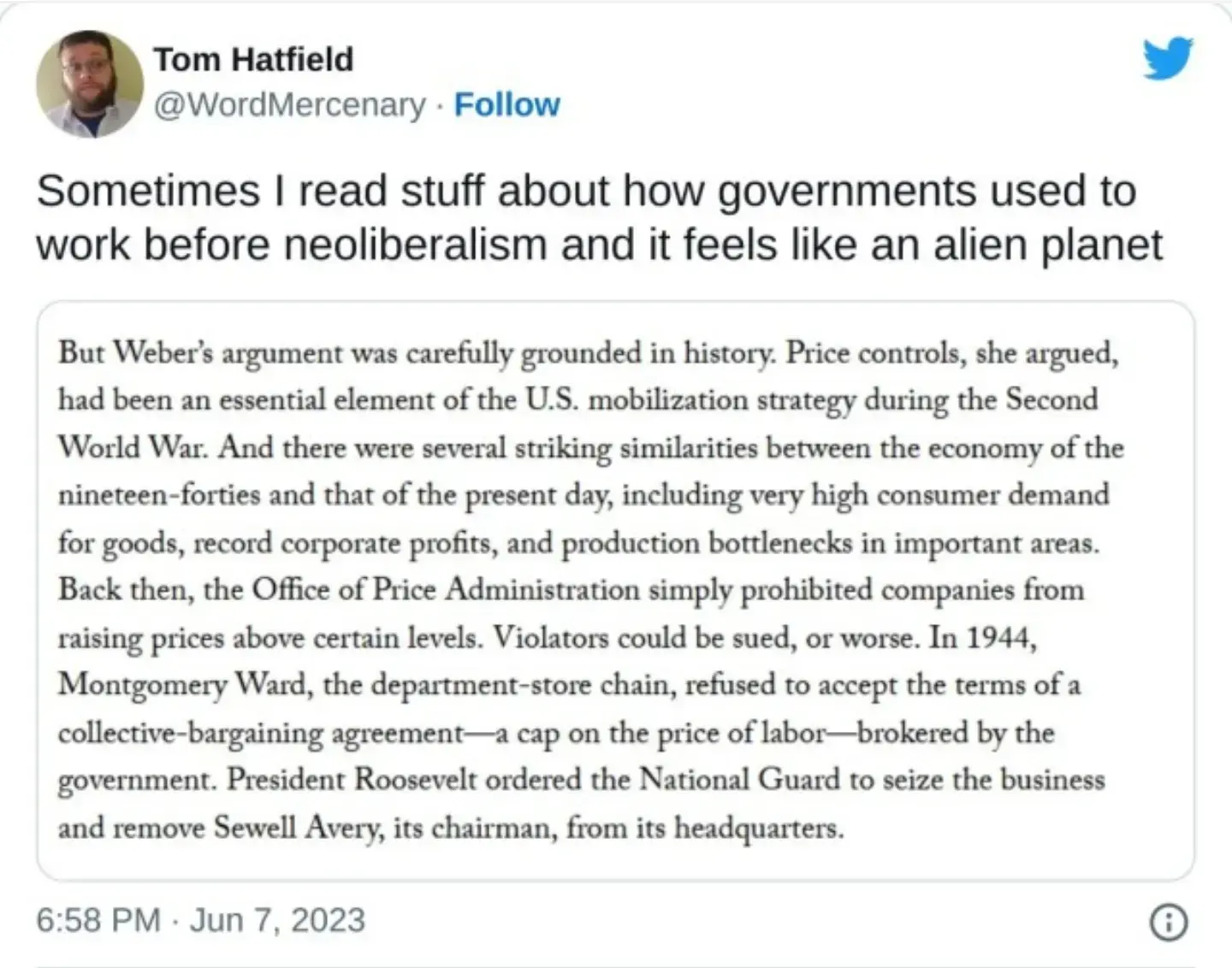this post was submitted on 29 Sep 2023
104 points (94.8% liked)
Canada
10267 readers
897 users here now
What's going on Canada?
Related Communities
🍁 Meta
🗺️ Provinces / Territories
- Alberta
- British Columbia
- Manitoba
- New Brunswick
- Newfoundland and Labrador
- Northwest Territories
- Nova Scotia
- Nunavut
- Ontario
- Prince Edward Island
- Quebec
- Saskatchewan
- Yukon
🏙️ Cities / Local Communities
- Anmore (BC)
- Burnaby (BC)
- Calgary (AB)
- Comox Valley (BC)
- Edmonton (AB)
- Greater Sudbury (ON)
- Guelph (ON)
- Halifax (NS)
- Hamilton (ON)
- Kootenays (BC)
- London (ON)
- Mississauga (ON)
- Montreal (QC)
- Nanaimo (BC)
- Niagara Falls (ON)
- Niagara-on-the-Lake (ON)
- Oceanside (BC)
- Ottawa (ON)
- Port Alberni (BC)
- Regina (SK)
- Saskatoon (SK)
- Squamish (BC)
- Thunder Bay (ON)
- Toronto (ON)
- Vancouver (BC)
- Vancouver Island (BC)
- Victoria (BC)
- Waterloo (ON)
- Whistler (BC)
- Windsor (ON)
- Winnipeg (MB)
Sorted alphabetically by city name.
🏒 Sports
Hockey
- Main: c/Hockey
- Calgary Flames
- Edmonton Oilers
- Montréal Canadiens
- Ottawa Senators
- Toronto Maple Leafs
- Vancouver Canucks
- Winnipeg Jets
Football (NFL): incomplete
Football (CFL): incomplete
Baseball
Basketball
Soccer
- Main: /c/CanadaSoccer
- Toronto FC
💻 Schools / Universities
- BC | UBC (U of British Columbia)
- BC | SFU (Simon Fraser U)
- BC | VIU (Vancouver Island U)
- BC | TWU (Trinity Western U)
- ON | UofT (U of Toronto)
- ON | UWO (U of Western Ontario)
- ON | UWaterloo (U of Waterloo)
- ON | UofG (U of Guelph)
- ON | OTU (Ontario Tech U)
- QC | McGill (McGill U)
Sorted by province, then by total full-time enrolment.
💵 Finance, Shopping, Sales
- Personal Finance Canada
- Buy Canadian
- BAPCSalesCanada
- Canadian Investor
- Canadian Skincare
- Churning Canada
- Quebec Finance
🗣️ Politics
- General:
- Federal Parties (alphabetical):
- By Province (alphabetical):
🍁 Social / Culture
- Ask a Canadian
- Bières Québec
- Canada Francais
- Canadian Gaming
- EhVideos (Canadian video media)
- First Nations
- First Nations Languages
- Indigenous
- Inuit
- Logiciels libres au Québec
- Maple Music (music)
Rules
- Keep the original title when submitting an article. You can put your own commentary in the body of the post or in the comment section.
Reminder that the rules for lemmy.ca also apply here. See the sidebar on the homepage: lemmy.ca
founded 4 years ago
MODERATORS
you are viewing a single comment's thread
view the rest of the comments
view the rest of the comments

I'm afraid I don't follow. "Price caps" isn't even mentioned in the definition. Indeed, price caps are one possible external mechanism, but hardly the only possibility. Perhaps you can explain how you see "external mechanism" equating to price caps and price caps alone?
Again, I don't follow. There was nothing said about price being unable to fall. Where do you see rigidity coming into play?
Also, it says that a shortage is a situation where price is unable to rise, not a shortage is when price is unable to rise. This situation is that, with loss of the default scarcity control mechanism (price not being able to rise) during periods of rising demand or declining supply, demand is able to exceed supply. Exactly what you also say a shortage is. For the sake of improving communication in the future, can you explain to me how this was not clear?
The definition is technical. It requires some understanding of economics to grasp. Your entire paragraph definition is more approachable – but also excruciatingly long for a formal definition. As the grander discussion is about economics, we're not talking to people who don't have some understanding of economics, so we can safely use technical terms. Anyone here in good faith that does not have such understanding is going to develop that understanding before going any further.
While "formally" already indicates where the definition comes from, logically where the definition comes from is irrelevant. I can speak to it myself to anyone who wants to have a conversation and not go down some totally bizarre "Neo-liberal" road. If you would rather read someone else's work, why be here?
And if repetitive miscommunication means that I fail to speak to it, oh well? It makes no difference to me if someone does not take anything from it. Who cares what someone else thinks? That's their problem. It is not my job to educate them and I have absolutely no desire to become a teacher – especially for free. Do you really believe that I need to work as someone else's teacher for free or have we miscommunicated again?
Try again.
Try what again?